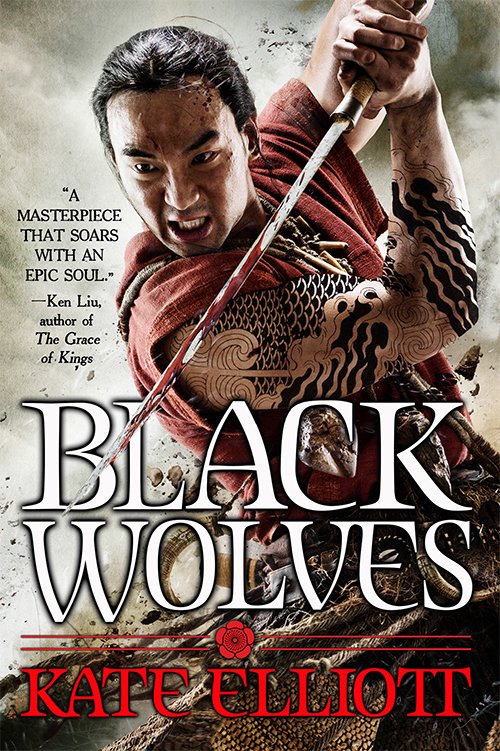Recently on Twitter I mentioned my intention to read the entirety of the Shahnameh (The Persian Book of Kings) by Abolqasem Ferdowsi in 2016.
To quote from the introduction to the Dick Davis translation:
“The Shahnameh is the national epic of Iran, or Persia as the country used to be called, composed by the poet Ferdowsi in the late tenth and early eleventh centuries C.E. Its subject matter is vast, being nothing less than the history of the country and its people from the creation of the world up to the Arab conquest.”
In other words, the Shahnameh is one of the great epics of world literature. For some years now I’ve been feeling I ought to better acquaint myself with it (by finding a good translation and actually reading the whole thing) as a part of my slow attempt to grasp what “epic narrative” means in all its worldwide forms.
When I tweeted a photo on Twitter of the cover of the Dick Davis translation of the Shahnameh, which I had decided to read, writer Tessa Gratton replied that she had that very book sitting on her desk but hadn’t started it yet.
From this serendipitous exchange our project bloomed.
Here’s how it will go.
We plan to read the book in 42 segments (listed below), ranging in page count from 6 – 40 pages per week but averaging about 20. A 42 segment plan allows us to miss the occasional week due to vacation, illness, urgent deadline, and the dreaded etcetera, and still have a reasonable chance of completing the epic by the end of the year.
Each week we will exchange a few comments, add a link related to the epic, the narrative, the history, the author, the translator, or anything, really, that strikes us as interesting and illuminating. This is casual, done for our own pleasure, and not meant to be academic or scholarly although we hope to learn more about the history of this amazing epic and its author as we go.
We are using the Dick Davis translation, published by Penguin Books (we’re using the trade paperback edition with an introduction by Azar Nafisi, first published in the USA in 2007). We both have print copies but it is also available as an ebook (although the Kindle edition is more expensive than the trade paperback). Also, of course, your local library may have it. The page numbers listed below are from the Davis print edition.
Davis himself has abridged the poem somewhat (and one supposes as judiciously as possible); he explains his choices in his introduction. So I think it will be entirely possible to read along with another translation (or, of course, in the original language, which is always best). Even if there may be places of difference, the overall structure and order of story remains the same.
Reading schedule, by week:
(dates subject to change but we hope to stick to the schedule)
Week 1: The First Kings (8 pages) (January 15)
Week 2: The Demon-King Zahhak (19 pages) (January 22)
Week 3: The Story of Feraydun and His Three Sons (8 pages) (January 29)
Week 4: The Story of Iraj (11 pages) (February 5)
Week 5: The Vengeance of Manuchehr (16 pages) (February 12)
Week 6: The Tale of Sam and the Simorgh (7 pages) (February 19)
Week 7: The Tale of Zal and Rudabeh (34 pages) (February 26)
Week 8: Rostam, the Son of Zal-Dastan (6 pages)
Week 9: The Beginning of the War Between Iran and Turan (21 pages)
Week 10: Rostam and his Horse Rakhsh (4 pages)
Week 11: Rostam and Kay Qobad (6 pages)
Week 12: The Seven Trials of Rostam (22 pages)
Week 13: The King of Hamaveran and his Daughter Sudabeh (13 pages)
Week 14: The Tale of Sohrab (28 pages)
Week 15: The Legend of Seyavash, first of three parts (22 pages)
Week 16: The Legend of Seyavash, second of three parts (22 pages)
Week 17: The Legend of Seyavash, third of three parts (22 pages)
Week 18: Forud, the Son of Seyavash (18 pages)
Week 19: The Akvan Div (7 pages)
Week 20: Bizhan and Manizheh (40 pages)
Week 21: The Occultation of Kay Khosrow (25 pages)
Week 22: Rostam and Esfandyar, first of two parts (26 pages)
Week 23: Rostam and Esfandyar, second of two parts (26 pages)
Week 24: The Death of Rostam (18 pages)
Week 25: The Story of Darab and the Fuller (14 pages)
Week 26: Sekander’s Conquest of Persia (16 pages)
Week 27: The Reign of Sekander, first of two parts (28 pages)
Week 28: The Reign of Sekander, second of two parts (29 pages)
Week 29: The Ashkanians (25 pages)
Week 30: The Reign of Ardeshir & The Reign of Shapur, son of Ardeshir (23 pages)
Week 31: The Reign of Shapur Zu’l Aktaf (23 pages)
Week 32: The Reign of Yazdegerd the Unjust (22 pages)
Week 33: The Reign of Bahram Gur, first of two parts (28 pages)
Week 34: The Reign of Bahram Gur, second of two parts (29 pages)
Week 35: The Story of Mazdak (6 pages)
Week 36: The Reign of Kesra Nushin-Ravan (32 pages)
Week 37: The Reign of Hormozd, first of two parts (28 pages)
Week 38: The Reign of Hormozd, second of two parts (29 pages)
Week 39: The Reign of Khosrow Parviz (18 pages)
Week 40: Ferdowsi’s Lament for His Son (8 pages)
Week 41: The Story of Khosrow and Shirin (22 pages)
Week 42: The Reign of Yazdegerd (23 pages)
Final Thoughts on the Shahnameh Readalong
To join us (and we hope you will), read along. You can start now, or join in AT ANY TIME throughout the year. If you want to send us a link to related material, we will GLADLY include it in one of the weekly posts. The more the merrier.
Next week we commence with the first segment, The First Kings (pp 1 – 8 of the Davis print edition).





